 Reducing the amount of sugar in our diet undoubtedly improves our health. Reducing sugar intake could help people lose weight, have more hydrated skin and have a healthier mouth. Teeth are the first part of the body to come into contact with sugar, therefore taking the brunt of the sugar’s impact. This can have a detrimental impact on someone’s oral health, especially if oral cleaning isn’t as good as it could be. However, for the processed food industry, increased consumer concern over sugar is one of the top threats to their profits. After all food and beverage companies are highly dependent on sugar to make its products taste better and drive cravings that keep people coming back to buy more and more.
Reducing the amount of sugar in our diet undoubtedly improves our health. Reducing sugar intake could help people lose weight, have more hydrated skin and have a healthier mouth. Teeth are the first part of the body to come into contact with sugar, therefore taking the brunt of the sugar’s impact. This can have a detrimental impact on someone’s oral health, especially if oral cleaning isn’t as good as it could be. However, for the processed food industry, increased consumer concern over sugar is one of the top threats to their profits. After all food and beverage companies are highly dependent on sugar to make its products taste better and drive cravings that keep people coming back to buy more and more.
To address this challenge food and beverage companies have been on the hunt for a silver bullet to cure their sugar addiction. One company that Big Food has enlisted for support is Senomyx, an American biotech firm that creates additives that change how our food tastes and smells. By mapping the tongue and using its proprietary technology to understand what chemicals trigger our taste receptors, Senomyx has created a pipeline of artificial and natural additives that they hope will transform the foods we eat and drink. The question is, are these additives safe? And given the processed food industry’s track record, will we even know what’s being added into our food?
To help in the battle to reduce sugar and calories, Senomyx developed Sweetmyx. Unlike many of the artificial and so-called natural sweeteners that have been introduced over the past decade, Sweetmyx operates in a totally different way. Rather than being a sweetener it works by enhancing the sweet taste of sugar or other artificial sweeteners, thereby allowing manufacturers to reduce the amount of sweeteners used in any given food or beverage.
So what do you need to know about Sweetmyx? Here’s a basic Q&A I’ve put together for my readers:
Q: How exactly does Sweetmyx work?
A: Well, I’m no scientist, but I’ve learned from various readings that our tongue’s taste receptors work somewhat like pieces of a puzzle. When sugar hits our tongue a molecule of it will connect with a sweet taste receptor, stimulating the nerve pathway and creating the sensation of sweet. Sweetmyx hijacks that pathway by agitating and exciting that sweet taste receptor with another chemical that works when it’s in the presence of sugar. So in a way, it increases your receptor’s sensitivity to sweet taste sensations.
Q: Is Sweetmyx natural?
A: Although Senomyx has both “natural” and artificial flavoring additives in their pipeline, from what I’ve been able to surmise, S617 (the company’s moniker for Sweetmyx) is not a naturally derived sweetness enhancer. It appears to be artificially synthesized from chemicals.
Q: Is Sweetmyx safe?
A: We just don’t know. Despite requesting safety information several times from Senomyx, neither I nor various media partners I work with have been able to get any details of safety testing conducted on Sweetmyx.
Q: How was Sweetmyx tested and approved?
A: Again, there isn’t much information out there. What we do know is that Senomyx declared Sweetmyx GRAS (a term coined by the FDA that means Generally Recognized as Safe) based on a FEMA panel recommendation.
What’s FEMA? It stands for Flavor and Extract Manufacturers Association, and it’s a trade organization representing 120 member food and flavoring companies. What this Sweetmyx example highlights is that basically the flavoring industry not only develops the food additives, but then it’s allowed to test and approve them as safe using its own industry association. This practice points out one of the many flaws with the FDA’s governance of what’s allowed in food, and it’s the subject of a recent lawsuit filed by the Center for Food Safety against the FDA.
Q: What foods will Sweetmyx be in?
A: Pepsico has an exclusive deal with Senomyx to use Sweetmyx in its non-alcoholic beverages. So that means it could be added to any of Pepsi’s line-up of fruit juices, sports and energy drinks, and sodas.
Firmenich SA has negotiated the rights to commercialize Sweetmyx in food. As the world’s #2 ranking flavoring company, Firmenich’s sales reach is powerful so Sweetmyx will likely land in cookies, muffins, cakes, yogurt, and other highly processed foods found in your grocery store.
Q: How will Sweetmyx be labeled?
A: Again, right now we’re operating in the dark, but we do know that food and beverage companies wants it to appear as innocuous as possible. So you can probably bet it won’t be labeled as Sweetmyx—that would draw too much consumer attention. Most likely you’ll see it lumped in with artificial flavorings, artificial sweeteners, or perhaps listed as a “sweetener blend”.
Q: So what’s the bottom line? Is Sweetmyx a good thing? Is it healthy?
A: Answering whether Sweetmyx is good for you can be complicated, but here’s my perspective. Senomyx and Big Food would like us to think they’re helping us out by introducing lower-calorie, healthier foods made with Sweetmyx. In reality they’re introducing yet another additive into an already highly processed food world.
While Sweetmyx may help some people reduce sugar consumption, it totally ignores the most viable health solution—encouraging people to eat real food instead of the highly processed diet most Americans consume. Let’s be honest, who knows how this additive will affect our bodies? We certainly haven’t seen any testing that should make us rest easier. But even if Senomyx and Pepsi produce some safety studies, rarely do these studies examine the long-term effects of additives and how they interact with all the other flavoring and colorings that are in our food. Furthermore, time and again we’ve learned we don’t truly understand the intricacies of the metabolic pathways our body. Sweetmyx could be yet another additive that may trick our taste buds today, but wreak untold damage over our lifetimes.
Now that you’ve heard my opinion, what do you think? Is a product using Sweetmyx something you’d consider buying? What sweeteners do you consider safe, and how do you minimize the amount of sugar in your diet?
UPDATE 8/31/2015: Pepsi announced it will be test marketing two sodas (Mug Root Beer and Manzanita Sol) sweetened with Sweetmyx. The test markets will be in Denver and Philadelphia, and the new Sweetmyx-enhanced beverages should be on shelf by the end of October 2015. Click here for the full Bloomberg Business news article regarding the test.
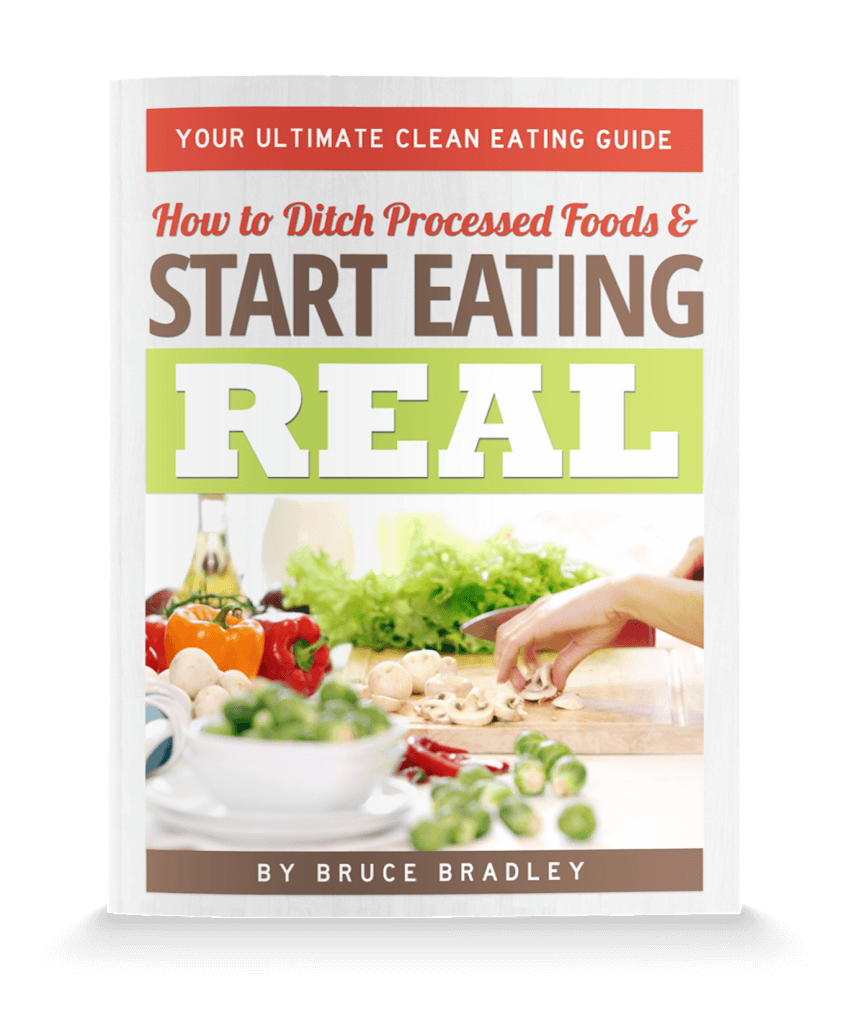
GET MY FREE BOOK NOW!
End the confusion! Learn what’s really in your food and how to take simple steps toward eating healthier!
EAT HEALTHIER TONIGHT!
If you enjoyed this article or recipe may I ask you a favor? Please share it with a friend. Why? Because together we can make a difference and help each other live happier and healthier lives. Thank you!

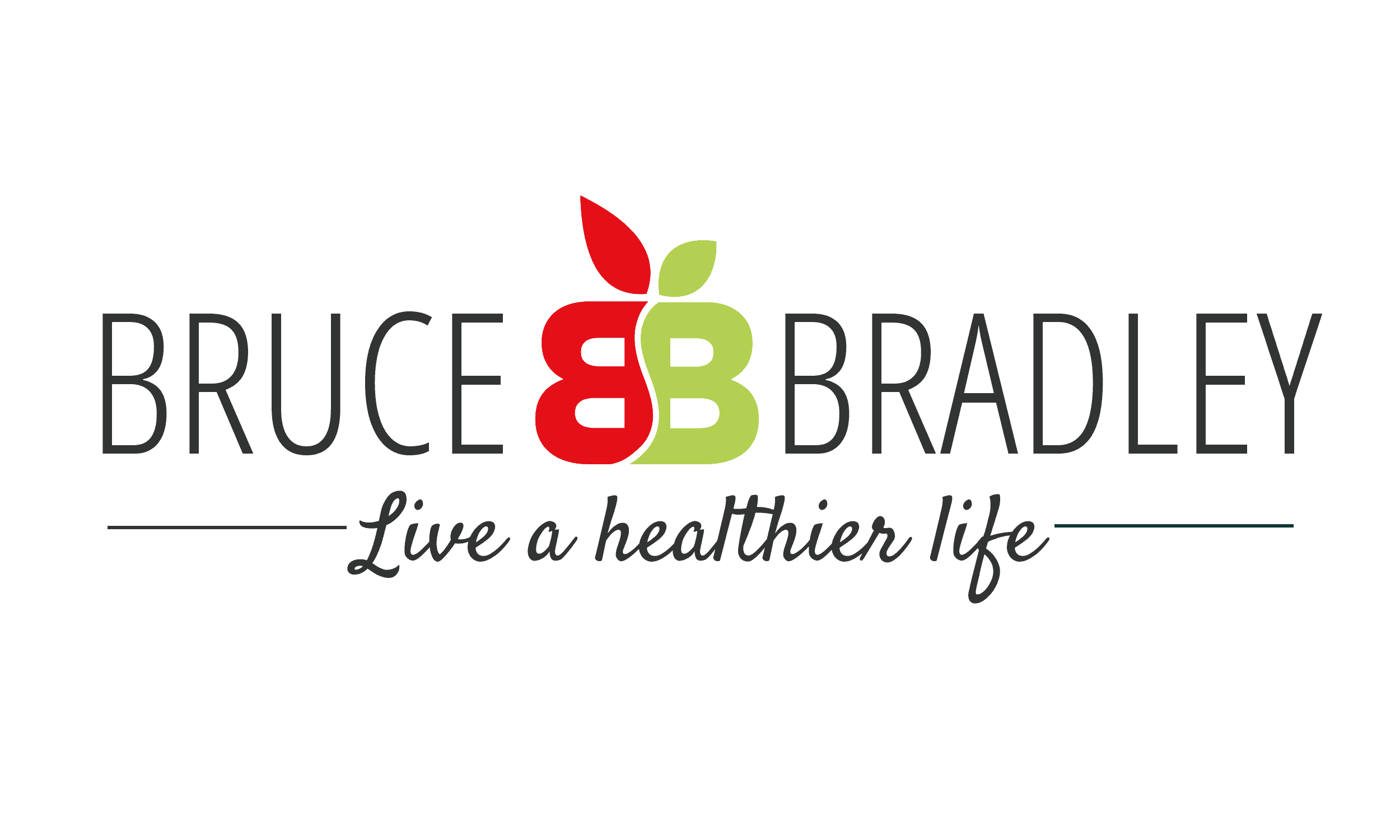
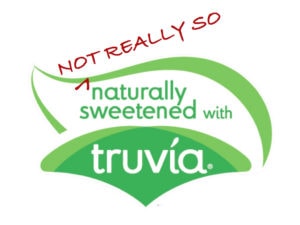


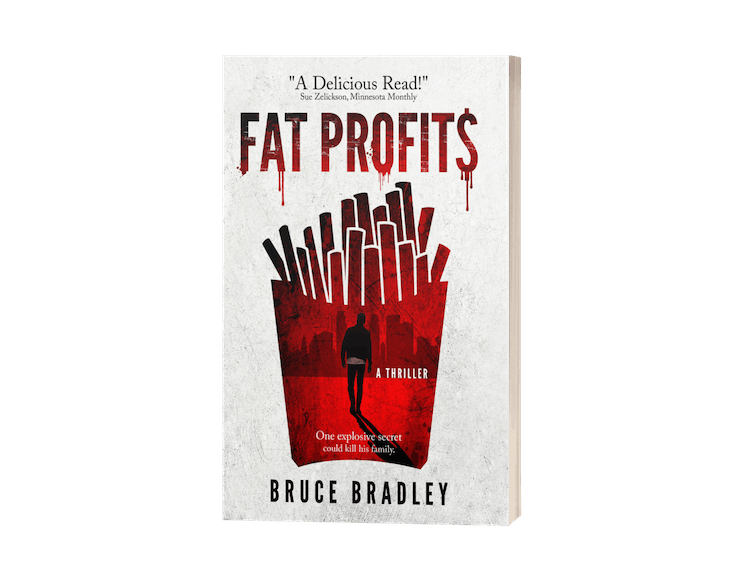
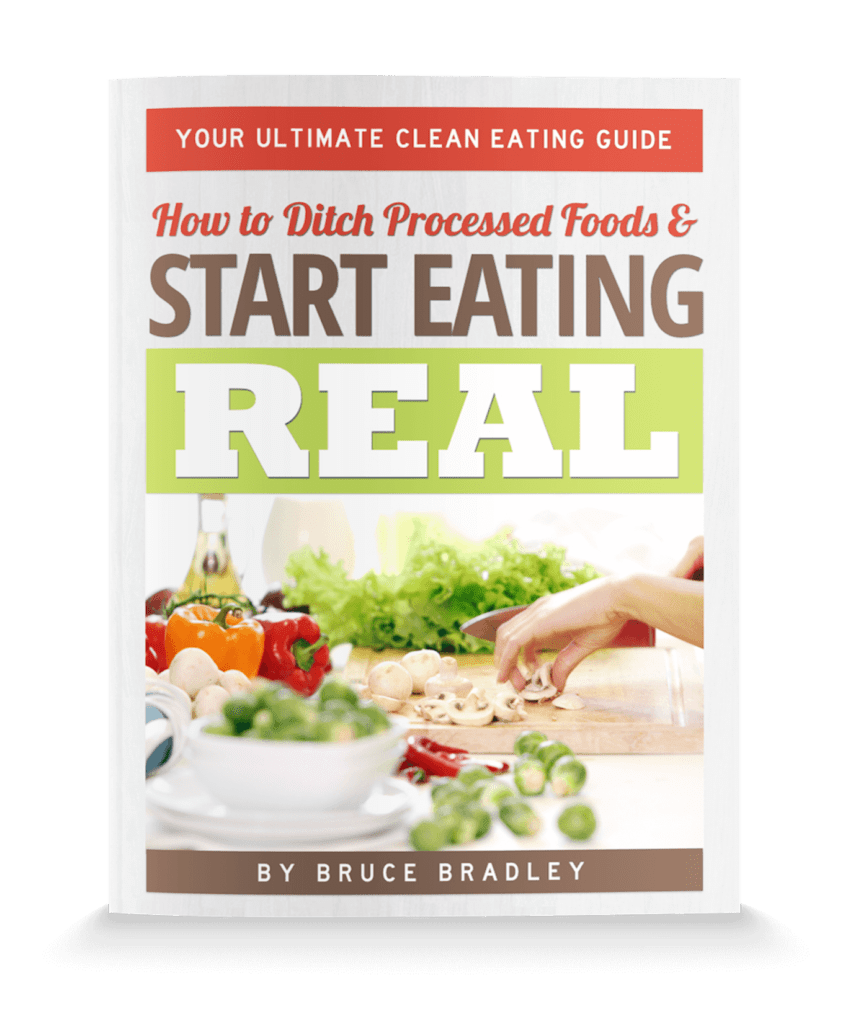

30 Responses
Wow… That’s really scary. It just doesn’t stop. For years I’ve been saying there’s got to be something that we’re eating or drinking or breathing that is causing all of these illnesses, diseases and allergies/asthma. And I believe it’s all of these different chemicals that Big Businesses are handing to us just so they make a profit. It sickens me.
I don’t think this is a good idea. In fact, reading this article made me think of the drug ecstasy(or any street drug for that matter). It takes the endorphins from your brain to make you think everything is wonderful & great, happy carefree. When in actuality it’s robbing you of a natural high later in life. How are “street drug” illegal & these “food/drink drugs” not? I may not be using the correct technical terms but you get my idea.
Just found your blog. Great stuff. Keep getting the word out! Eat real food! Thanks!
Thanks, Ginny! Glad you’re enjoying my blog.
Bruce Bradley, I totally agree with your ideas on swetmyx. This is all chemical, and is rotting our body every time we consume this horrid food into our body. I will watch out for those labels, everyday our diet is becoming more and more dangerous. Luckily, there are still some of us who believe in the right things. Lets fight for what we believe in! I for one will not eat these foods that are funded by Pepsico and Fermenich SA. I know a lot about the new foods big companies are creating, and I’m researching more! Keep me posted. Simon L 5th. grader
Sounds like at least Pepsi will be taken out of our diet. Luckily for me I don’t drink soda, and my husband likes different types, So I can change his Pepsi for something else. However, sounds like the company will try to get this into our diet other ways. I hope You will keep us informed if you find out any other foods this will be placed in. thanks for the info.
We need to clean house at the FDA. They are there to protect us. It makes me sick that we no longer have any protection from Food and Drug companies. It seems they can feed us what ever they want for the almighty $$$$$$! Why are we the only country to allow these companies to poison us. Russia is throwing out McDonalds because it’s food is too fattening. We need to do the same. These companies are making us sick and they are getting rich along with the Healthcare Companies. They are all getting richer while America is getting sicker, fatter and dying of cancers faster than you can say, “Wait what just happened?”. Read the artical about how Kraft had to recall millions of Taco Bell taco shells because they were made of GMO corn. It was declared un fit and unsafe for human consumption in 1999, however in 2014 it is not even labeled and used in almost every food on the shelves. When did we lose our rights to know what we are eating? Maybe everyone should pick up a copy of Soylent Green a movie from the 70’s set in 2022. That day is here!! Scary.
You wrote…..
“Why are we the only country to allow these companies to poison us. Russia is throwing out McDonalds because it’s food is too fattening. We need to do the same. These companies are making us sick and they are getting rich along with the Healthcare Companies.”
We are the only country because we have allowed our various forms of government to become corrupted. It has gotten even worse since our Supreme Court recently decided to have no limits on individuals or corporations contributons to our politicians. So, you see, there is no purpose to applying logic to how our government functions. In case you haven’t noticed government does not exist anymore to protect our citizens nor improve our country. No logic can explain away the corrupt decisions made by our various forms of government. This will not change until we get the big money out of our political systems. Most everybody in high positions in government are corrupted by the power and money and are only in it for themselves. It is very, very sad and I don’t know of anything that can be done to remedy it.
Thanks for your comment, Roc. Unfortunately corporate profits trump health in this country. Hopefully we can change that over time by creating a movement that encourages more people to join in and take a stand for greater transparency of what’s in our food and less deceptive marketing.
Nobody is being forced to use these foods and additives. Blaming government is nonsense. Don’t buy the product and food companies will stop selling them. Simple!
Couldn’t disagree with you more, especially in the case of Sweetmyx. The way this additive is being labeled, most people probably will have NO IDEA it’s even in their food. So not only has it NOT been independently tested, but it also won’t be labeled properly. In my book that’s a HUGE fail!
Wow! thx for the heads up.
Thank you for your work. This is very important for people to know and began to think. Greetings from Poland
It’s too bad companies cannot or have not adopted sweeteners such as Miracle Fruit. I grow this just for my personal use, but this is a natural plant and a berry greatly enhances the sweetness of food with a temporary effect of tricking the taste buds to make them think sour is sweet. Very low calories (probably less than 5 for a berry) and can be grown organically and in the same climate as sugar cane.
Thanks for your comment, Greg. I must admit, I’m not familiar with Miracle Fruit. I just googled it — sounds interesting. I’ll have to do some more research into it!
“chemicals trigger our taste receptors…”
Can you expand on the connection between the taste buds and receptors? Are these receptors in the brain? Is their function to regulate the release of hormones, making this another brain damaging chemical additive?
Hi Alicia! Thanks for the comment/question. Taste buds contain the clusters of receptors. The taste receptor cells then send information detected by these clusters or receptors via nerves to the gustatory (taste) area of the brain). So the receptors are in the buds, they connect with nerves that transmit the information to the brain. I’m no scientist but my question is, we know that the sweet taste sensation stimulates a whole cascading process in our bodies–it’s what prepares the sugar in whatever form to be digested and metabolized. Is this short-circuiting or re-wiring of the system going to create some unintended consequences? When the brain gets the word that sugar is coming and releases hormones or makes other connections to handle that job, what happens when that sugar doesn’t show up? Over time does this wear down the metabolic system? Does it become a bit like the boy who cried wolf and when real/un-enhanced foods and beverages come along, our bodies don’t respond appropriately? There are just a whole host of questions that use of sweeteners and taste enhancers create, and there has been little to no transparency about what they are and testing that’s been conducted on them. I think we deserve more transparency. I know I don’t want to become the food industry’s latest lab experiment.
Hope that helps!
Bruce
This does not surprise me. Our best bet is to avoid processed foods all together. Just another reason to eat single ingredient natural foods and avoid chemicals, fructose, saturated fats, starch and preservatives! I will never eat processed foods again.
Hi Brad,
I appreciate all the info you are providing. I am a new beverage developer and my formulator has suggested that we use a certain sweetener for our newest product. I have done some preliminary checking on it and I’m not completely happy with what I see. Can you give me any suggestions on how I can go about getting more info on this product. Are there certain websites that I can go to?
Thanks!
Jenny
Hi Jenny. Sweetmyx is made by a company called Senomyx. They have licensed its use exclusively to Pepsi … so unless you’re formulating it for them … you’re out of luck. Regardless, there is so very little safety information and testing that’s been shared about this product, I don’t think it should be approved for use in our beverages. While I’m not anti-science/progress … I think there needs to be a substantial increase in the burden of proof that ingredients like these are safe. AND … I think even when safety testing has been done, they should ALWAYS be labeled in such a way that your average consumer understands what’s in their food. We’re fortunate to live in a world where it’s very easy to have access to information. The food and beverage industry, however, sees this ready access as a threat since more and more people want to know what’s really in their food and drinks.
Thanks,
Bruce
Are you aware of the Senomyx development of flavor enhancers using HEK-239? HEK is Human Embryonic Kidney. A specific cell line which, as the name denotes, were derived from the kidney cells of an aborted human embryo in 1972.
Read more at http://www.snopes.com/politics/medical/pepsi.asp#yuukC8HCPmDAC1SU.99
Yes, Marilee, I am aware of that claim. Just to be clear to those who read these comments but may not check out the snopes.com link Marilee shared—Senomyx’s flavor enhancers do not contain cells from aborted human embryos. That said, Senomyx may have used cells from aborted human embryos during the research and development process of their growing line-up of flavor enhancers.
what is the relationship between sweetmyx and HEK293 (Human embryonic Kidney cells) also used by the same company? i believe that the HEK293 was also used to test pepsi flavors?
thanks, Mark
Thanks for your comment, Mark.
Senomyx’s use of fetal (HEK293) cells has come up in the press. PepsiCo, who has licensed the use of Sweetmyx in its products, has responded that “Senomyx does not use HEK cells or any other tissues or cell lines derived from human embryos or fetuses for research performed on behalf of PepsiCo.” Furthermore, PepsiCo’s Responsible Research Statement says, “…PepsiCo does not conduct or fund research – including research funded by PepsiCo but performed by third parties – that utilizes any human tissue or cell lines derived from embryos or fetuses.”
Hope this helps answer your question.
I am so glad I have already switched over to real foods. As I learn more about what gets put in our food, without our knowledge most of the time, it literally blows my mind. Getting people to care about what they eat and drink is definitely a challenge and Big Food knows this. I hope in the coming years, enough people will navigate against processed foods that have dangerous additives start fading out. Great article and you gained a new fan. 🙂
One thing that has not been mentioned is that Sweetmyx is instantly addictive. It was designed that way. It is a chemical and is not something the body will like. Over time, as we have seen time and time again the body will suffer from using this product. If you care about your body and health stay far away from this new poison.
Seems you avoided a key ingredient in Senomyx “enhancers” – hek (Human Embryo Kidney). This abomination should be nicknamed “Soylent Green”. (Watch the movie)
Marcia:
As I’ve mentioned before in reply to another commenter (Mark) PepsiCo, who has licensed the use of Sweetmyx in its products, has responded to this issue by saying “Senomyx does not use HEK cells or any other tissues or cell lines derived from human embryos or fetuses for research performed on behalf of PepsiCo.” Furthermore, PepsiCo’s Responsible Research Statement says, “…PepsiCo does not conduct or fund research – including research funded by PepsiCo but performed by third parties – that utilizes any human tissue or cell lines derived from embryos or fetuses.”
Hope this clarifies the issue.
https://www.google.com/patents/US20110224155 search for HEK. Sure looks like HEK was used in the development of this.
Ken:
Marcia:
As I’ve mentioned before in reply to other commenters (Mark and Marcia): PepsiCo, who has licensed the use of Sweetmyx in its products, has responded to this issue by saying “Senomyx does not use HEK cells or any other tissues or cell lines derived from human embryos or fetuses for research performed on behalf of PepsiCo.” Furthermore, PepsiCo’s Responsible Research Statement says, “…PepsiCo does not conduct or fund research – including research funded by PepsiCo but performed by third parties – that utilizes any human tissue or cell lines derived from embryos or fetuses.”
Hope this clarifies the issue.
Bruce
Some excerpts from Snopes ‘false” verdict regarding the claim that, “Products from Pepsi and other major food producers are manufactured using the tissue of aborted human babies.”
“Human Embryonic Kidney 293 cells, commonly known as HEK 293, are a specific cell line which, as the name denotes, were derived from the kidney cells of an aborted human embryo in 1972. This cell line is widely used in efforts such as cell biology research and biotechnology and pharmaceutical development.
Whatever one might think of fetal stem cell research in general, and regardless of whether or not Senomyx uses HEK 293-derived cells in its development efforts — neither Pepsi nor any other U.S. food company is manufacturing or selling any consumable products “that are actually made using the cell tissue of unborn babies that were murdered through abortion.” What we’re talking about here is a cell line derived from a single (healthy, aborted) fetus over forty years ago.
[if it looks like a duck and quacks like a duck, it’s a duck!]
Senomyx’s work for Pepsi is one of the first times the cells have potentially been used to create a food or beverage. The cells, called HEK 293 cells were taken from an aborted fetus in the 1970s in the Netherlands. The resulting cells don’t act much like human cells at all, but they are very easy to work with and have become workhorses of cellular biology.
A tiny company called Senomyx [tiny revenue of $17.17 million in 2008!] has been working to use this new technology to create food additives. Senomyx has isolated receptors found on cells that detect taste, and added them to the HEK cells. This allows them to test thousands of potential taste additives to see whether they might taste sweet or savory with a speed that would be impossible with human taste testers. Synomyx has announced collaborations with Pepsi, Nestle, and Coca-Cola.
Even though HEK 293 cells trace their origin to a single fetal kidney back in the 1970s — everything since has come from cultured cell lines.
Gwen Rosenberg, vice president of investor relations and corporate communications for Senomyx, said, “We don’t discuss details of our research, but you won’t find anything on our website about HEK293.” Asked if Senomyx had a position on stem cell research, Rosenberg said, “We’ve never been asked that. We don’t have a position on anything. We’re dedicated to finding new flavors to reduce sugars and reduce salt. Our focus is to help consumers with diabetes or high blood pressure have a better quality of life.”
Though Rosenberg states there is nothing on the company website linking Senomyx with HEK293, a search turned up a patent issued in 2008 for “Recombinant Methods for Expressing a Functional Sweet Taste Receptor,” in which a line item mentions HEK293.
Neither Pepsi nor Senomyx returned calls, so we don’t know the companies’ side of the story. But a perusal of Senomyx’s patents suggests that it may well be. All but 7 of the company’s 77 patents refer to the use of HEK 293 (human embryonic kidney) cells, which researchers have used for decades as biological workhorses.
In 2010 Senomyx entered into a four-year collaborative agreement to develop sweet enhancers and natural high-potency sweeteners for PepsiCo beverages, but it’s unclear whether PepsiCo has ever marketed any food products that include additives (of any kind) developed by Senomyx. It wasn’t until March 2014 that Senomyx announced the first fruits of their partnership with PepsiCo, a sweetness-enhancing “flavor modifier” known as Sweetmyx, but we’ve seen no subsequent announcement that PepsiCo has begun using Sweetmyx, and that additive appears to be a purely synthetic one.
Pepsi’s official response to the Senomyx issue was to point inquirers to their Responsible Research Statement, which stated that “PepsiCo’s research processes and those of our partners are confidential for competitive reasons. However, PepsiCo does not conduct or fund research that utilizes any human tissue or cell lines derived from human embryos.”
[“does not conduct or fund research that utilizes any human tissue or cell lines” doesn’t necessarily mean it’s not added to their products]
We contacted the Media Relations department at PepsiCo and posed some specific questions to them about their relationship with Senomyx but received only non-specific answers in response.”
So when you reiterate Snope’s claim that “Senomyx’s flavor enhancers do not contain cells from aborted human embryos”, it doesn’t deny the fact (as Snopes itself admits)…
“The cells, called HEK 293 cells were taken from an aborted fetus in the 1970s in the Netherlands.”
Personally, I wouldn’t trust the couple that run Snopes as far as I could throw them and neither should you or anyone else. If you haven’t noticed the site is a shill for government and corporations and one that labels the legitimate alternative news site Natural News as “quacks.”
More from the dopes at Snopes:
Did a Drag Queen in a ‘Demonic’ Outfit Read a Sexually Explicit Book to Children at a Public Library?
Snopes verdict: Mixture – This rating indicates that a claim has significant elements of both truth and falsity to it such that it could not fairly be described by any other rating.
This actual incident was deemed “Mostly False” by the sleuths at Snopes a few months ago when I initially checked. Now they’re basically saying “we’re not sure” as the evidence supporting the true event mounts. The modus operandi of Snopes is to pick and choose specific words in a claim (in this case “demonic”) and base their judgement on that, and not whether the basis of the information is legitimate. If these shills are good at anything, it’s lying and strawman arguments.
Watch: ANOTHER Drag Queen Entertains Small Children, This Time at Michelle Obama Library
—————————————
Another example of the blatant bias at Snopes is exposed on the question of whether there is a secret kosher tax on food.
From Snopes: “The rumor that the presence of those mysterious markings signifies that the manufacturers of those products have paid a secret tax to the Jews of America has been afoot for decades, and the e-mail quoted above is merely a more recent manifestation of this age-old canard. The claim is wholly false, and we wonder at the twisted minds that would advance such a slander. No ‘Jewish Secret Tax’ exists, or ever has. Kosher certification companies do charge for this service, which is the backbone of the ‘secret tax’ claim — it costs money to obtain and maintain kosher certification, thus this is an extra expense a manufacturer must bear if he’s determined upon having that certification. Does certification add to the price of a product? Certainly, but the amount is minuscule…”.
So, even though Snopes admits there is an additional cost to a product to have these “mysterious markings”, (with no mention of the cost being passed on to consumers), they still determine the tax claim is “FALSE”, but only because it’s not “secret.” (even though the vast majority of consumers are clueless about the scam).
The American Defense League reports that these rabbinical cabals profit hundreds of millions of dollars annually from their (high-pressure) sales of kosher certification, so the added cost on products to obtain the Jew’s blessing can hardly be considered insignificant.
I know for a fact companies are paying anywhere from $2000 a year or more to have their products certified kosher, and this is passed on to the consumer. The profits to these rabbinical unions is in the millions. Even many Jews could care less whether their food is kosher or not. It certainly doesn’t add to the quality of the product like organic certification does, and in fact most of the junk food on the market has been koshered.
Imagine the hue and cry if Christians had the ability to brand practically all food products (and even detergents, food wrap and cleansers) with a cross and charge consumers with a religious tax for this “divine sanction.” Atheists would be pulling their hair out and screaming to the rafters about this unholy deception and extortion. The reason I suspect they’re so quiet on this issue is because they’re either afraid of being labelled anti-Semitic or they’re all part of the same rat-pack.
Snopes is nothing more than a husband and wife team who protect the interests of big business while providing specious answers to those too lazy to do their own research. Snopes is as trustworthy as a politician or head of a corporation, and just as prejudiced. The public would do better by researching on their own and coming to their own conclusions, than by relying on the toadies at Snopes.
Read: Snopes, the Supposed Arbiter of ‘Fake News’ — Accused of ‘Defrauding Own Site to Pay for Prostitutes’ – The Free Thought Project